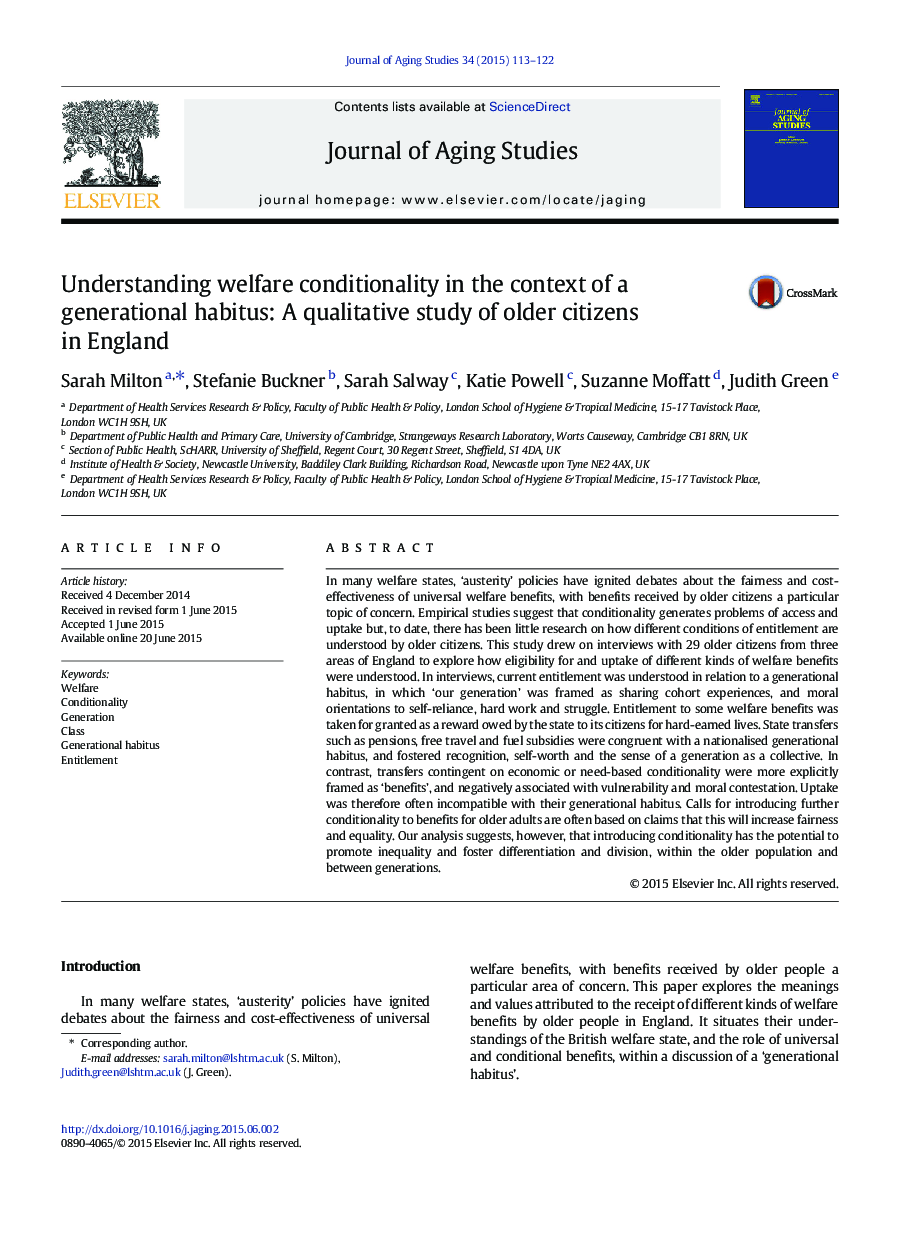| کد مقاله | کد نشریه | سال انتشار | مقاله انگلیسی | نسخه تمام متن |
|---|---|---|---|---|
| 1081774 | 1486767 | 2015 | 10 صفحه PDF | دانلود رایگان |
• Older adults in England narrated experiences as generational.
• ‘Our generation’ was characterised as having struggled to achieve self-reliance
• Receipt of universal age-related benefits was congruent with generational habitus
• Means and needs based conditionality fostered discourses of differentiation.
• Increasing conditionality may promote division within and between generations
In many welfare states, ‘austerity’ policies have ignited debates about the fairness and cost-effectiveness of universal welfare benefits, with benefits received by older citizens a particular topic of concern. Empirical studies suggest that conditionality generates problems of access and uptake but, to date, there has been little research on how different conditions of entitlement are understood by older citizens. This study drew on interviews with 29 older citizens from three areas of England to explore how eligibility for and uptake of different kinds of welfare benefits were understood. In interviews, current entitlement was understood in relation to a generational habitus, in which ‘our generation’ was framed as sharing cohort experiences, and moral orientations to self-reliance, hard work and struggle. Entitlement to some welfare benefits was taken for granted as a reward owed by the state to its citizens for hard-earned lives. State transfers such as pensions, free travel and fuel subsidies were congruent with a nationalised generational habitus, and fostered recognition, self-worth and the sense of a generation as a collective. In contrast, transfers contingent on economic or need-based conditionality were more explicitly framed as ‘benefits’, and negatively associated with vulnerability and moral contestation. Uptake was therefore often incompatible with their generational habitus. Calls for introducing further conditionality to benefits for older adults are often based on claims that this will increase fairness and equality. Our analysis suggests, however, that introducing conditionality has the potential to promote inequality and foster differentiation and division, within the older population and between generations.
Journal: Journal of Aging Studies - Volume 34, August 2015, Pages 113–122
